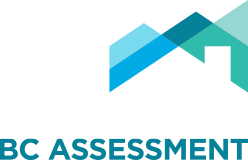
BC Assessment is responsible for assessing over 2 million properties in British Columbia as of July 1 each year.
The assessment process in British Columbia is governed by the
Assessment Act of British Columbia. The Assessment Act is legislation that provides rules and processes for BC Assessment to follow when creating and delivering property assessments.
The Assessment Process (Three Steps)
1. Information collection Information is collected and analyzed by BC Assessment appraisers for all properties in British Columbia. (Most often this information collection occurs when properties are created/constructed, but can also occur at other times like when properties are renovated.)
2. Information analysis Property sales are analyzed by BC Assessment appraisers to understand the property market as at July 1st of each year. This new market information is used to set the new assessments.
3. Create and deliver assessment notices
Assessment notices are created and then mailed to all property owners on December 31 each year.
Key Dates 
January 31 – Property Assessment Review Panel Deadline
People wishing to request an independent review of their assessment must file
their written notice of complaint with the assessor by this date.
July 1 – Valuation Date
The date actual (market) value of properties is determined for the purpose
of assessment rolls.
October 31 – Physical Condition and Permitted Use
The assessment reflects the physical condition and permitted use (zoning) of
property as of this date, except where substantial damage or destruction of the
December 31 – Assessment Notices
Completed assessment information produced and mailed to property owners. Assessment information and value totals are delivered to tax authorities and are available online.
Assessment Roll Quality
As an internationally recognized leader in property assessment, BC Assessment follows independent standards for assessment roll quality.
Learn more about these standards.
Every year there are four key dates for the assessment process.
January 31 – Property Assessment Review Panel Deadline
People wishing to request an independent review of their assessment must file
their written notice of complaint with the assessor by this date.
July 1 – Valuation Date
The date actual (market) value of properties is determined for the purpose
of assessment rolls.
October 31 – Physical Condition and Permitted Use
The assessment reflects the physical condition and permitted use (zoning) of
property as of this date, except where substantial damage or destruction of the
buildings occurs
December 31 – Assessment Notices
Completed assessment information produced and mailed to property owners. Assessment information and value totals delivered to tax authorities and are available online.
Frequently Asked Questions
Over time, BC Assessment has collected information about each property in British Columbia from many sources, including: the province, your city, site visits, and even homeowners.
- Building permits
- Land titles office
- Real estate transactions
- Property owner initiated updates
- 3D modelling of Vancouver’s downtown condos to determine views
- Requests sent to property owners
- A visit to the property
- Aerial and street-front imagery
Transcript:
How BC Assessment Assesses Properties (PDF)
How does BC Assessment determine property values?
Your assessment is based on the
market value of your property as of July 1st of the previous year. When determining the assessed value, our appraisers consider your property’s unique characteristics, including:
- The location of the home
- The view from the home
- The size of the home
- The age of the home
- Garages, carports, decks, pool, etc.
- Comparable sales prices and other real estate market information
Our appraisers also consider recent sales of properties with similar characteristics to your property.
Market value assessment is widely considered the fairest system for distributing the property tax burden.
In any tax area, properties of equal value contribute the same tax. Higher-value properties will contribute more.
Assessment Search is available for you to compare your property with recent sales and assessments of similar properties in your neighbourhood.
Learn more about how assessments influence taxes below.
Transcript:
Understanding Property Assessments & Property Taxes (PDF)
Section 19(8) of the Assessment Act allows certain residential land to be assessed at less than market value where the owner qualifies and provided the property has potential for development for a more valuable use than its current use.
Typically, section 19(8) is for long-term property owners living in communities or neighbourhoods where land use is changing and which may result in higher property assessment values. For example, a single-family home in an area zoned for multi-family high-rise buildings might qualify for a section 19(8) assessment application if the homeowner meets
ALL of the eligibility requirements.
Learn more about
Section 19(8) eligibility requirements.

